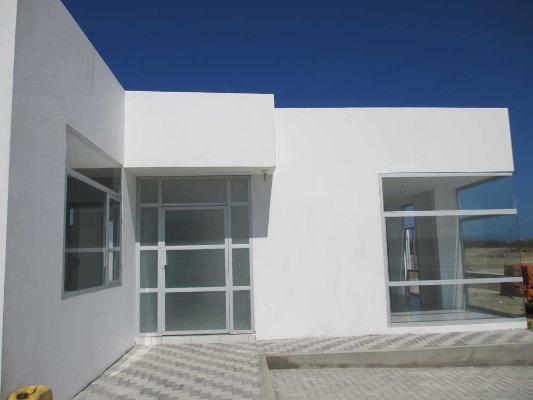Taxi fares, tram dominate Mayor Marcelo Cabrera’s first 100 days
What were the biggest issues new Cuenca Mayor Marcelo Cabrera faced in his first 100 days in office? That’s easy, he says. Taxi fares and the tram.
Although he said he has worked on a number of major projects, including reorganizing city government to “maximize efficiency,” Cabrera said that taxi fares and the light rail dominated his agenda.

The mayor has met more than a dozen times with city taxi drivers who say they cannot make ends meet with the rates mandated by the government and programmed into their meters, and says he is not unsympathetic to their cause.
“The rates they are using are 10 years old and I understand that the cost of living has gone up since then,” he said. “On the other hand, until the meters were installed, the taxis were charging much higher fares than the schedule permitted.”
Cabrera’s relationship with taxi drivers was made more difficult this week when the committee considering new fares postponed making a final decision for the third time.
Just as emotional as the fare issue, has been Cuenca’s new light rail system, Travía de los Cuatros Rios.
A technical team from UNESCO was in town earlier this week to evaluate the project, including Cabrera’s concern that the train route through the historic district could damage historic buildings and jeopardize Cuenca’s UNESCO status as a World Heritage Site.
Business owners and residents along the tram route on Calle Gran Colombia are protesting that the project will disrupt their business and change the character of their neighbhorhood. Cabrera told the group that it is unlikely the route will change, but it continues to collect petition signatures.
City Transportation Secretary Gerard Fernandez has said that it would be almost impossible to change the route now. He noted that tram rails have been manufactured and delivered based on the route through El Centro.
A bigger issue than the route, Fernandez and Cabrera say, is the fare that will be charged to ride the Tranvía. Former Mayor Paúl Granda said the fare would be 25 cents, the same as bus fare, but Fernandez says that is too low. Studies are underway to determine a “sustainable fare.”
It was the coldest day but it’s not the coldest month
Monday was the coldest day of the year according to the weatherman.
Although the low temperature for the day was only two degrees below the
yearly average, the high of 56F was the coolest of the year. The average
high in Cuenca is 70F.
The metereologists say that, overall, temperatures for the month of
August are about average and slightly warmer than last
year.
According to weather office spokesman Vladimir Arriaga, late July through August is historically the coldest time of year in Cuenca. “We have cool, moist winds flowing from the Amazon over the mountains and this creates clouds and low temperatures,” he said. “The cool weather usually lasts five to six weeks and we expect the pattern to change, as usual, by the end of the month or early September.”
Cuenca expat and retired meteorologist Ron Simmons, who calls himself a “student” of Cuenca weather, says he is amused by gringos who say this August is the coldest in history. “I would suggest that the comments are the result of old bones and short memories.” He added: “Most of these folks have never been to Minnesota, or even Georgia in the winter.”
Simmons says he is being partly facetious. “I complain too. This would be nothing back in the U.S. since we have central heat expept the change of seasons,” he says. He adds that he spent last week at the coast hoping, among other things, to see more of the sun. “The problem is that this is the ‘gray season’ over there and it was foggy and cloudy every day.”
Simmons says that Augusts are actually getting warmer in Cuenca, possibly the result of global warming. “Until the 1960s and 1970s, the mountains visible to the west from downtown Cuenca occasionally had a dusting of snow,” he says. “The last record of that is 1974. Now, the snowfall in the Cajas is only at higher elevations, usually above 12,000 feet.”
Photo caption: Mayor Marcelo Cabrera





















